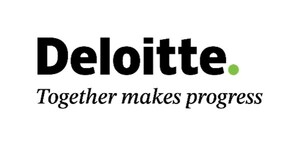
NEW YORK, June 24, 2013 /PRNewswire/ -- Rising and increasingly volatile costs dominate retailers' top challenges sourcing private label goods, while changes in consumer behavior fueled by mobility and online shopping are driving the strategic importance of private label sourcing, according to a new Deloitte study, "Private Label Sourcing: Strategies to Differentiate and Defend."
(Logo: http://photos.prnewswire.com/prnh/20120803/MM52028LOGO-a )
"Rapid population growth, skewed to developing regions, is increasing demand on raw material sources while providing new markets for low-cost labor," said Michael Daher, principal and Retail Sourcing Practice leader, Deloitte Consulting LLP. "Additionally, online, mobile and social channels continue to disrupt the retail landscape. As low-cost online competitors continue to expand across more categories, private label provides an opportunity for retailers to defend their marketshare by offering products that are exclusive to their banner. But it's not the 'copy and paste' private label we grew up with—these are innovative private label brands that require more sophisticated sourcing capabilities."
Deloitte's Private Label Sourcing Study – one of the largest and most comprehensive to date – analyzed responses from more than 260 executives from apparel, general merchandise and grocery retailers to uncover shifts in market trends and private label sourcing practices.
The survey asked respondents to rank their top market pressures. Respondents indicated that raw material cost increases and volatility were considered the top market pressures, followed by rising labor wages and fuel price volatility. Raw materials, production labor costs and transportation costs account for 80 to 84 percent of total respondents' average product costs.
Retailers' current response strategies do not appear to directly mitigate such pressures. Roughly 7 in 10 respondents indicate that their organization's response strategy is currently focused on enhancing quality assurance programs (71 percent), engaging in advanced planning/scheduling with vendors (70 percent) and enhancing ethical sourcing capabilities (69 percent).
In contrast, retailers are adopting new strategic responses that correspond more closely to the acute cost of pressures reported. Retailers' top three emerging strategies include: diversifying their country source of supply footprint (35 percent), re-shoring production to domestic vendors (33 percent), and consolidating vendors (28 percent).
"Re-shoring to local markets is becoming an increasingly attractive option for retailers looking to reduce transportation costs and for products with low labor intensity," continued Daher. "For retailers in sub-sectors such as apparel, which tend to have the most vendor fragmentation, cost pressures may incentivize vendor consolidation – especially when retailers desire to improve their leverage to negotiate lower costs, manage smaller order sizes and execute faster production cycles."
Outsourcing of retailers' sourcing activities continues to play a significant role. Virtually every sourcing activity was fully or partially outsourced more than 50 percent of the time, and for activities like raw material and finished goods sourcing, that number rises to more than 60 percent. Several retailers are disterimediating their supply chain partners by establishing off-shore sourcing offices to "go-direct" to the manufacturers.
Ethical sourcing remains a top priority among retailers: a total of 92 percent of respondents indicate their organizations are either currently enhancing their ethical sourcing capabilities to address sourcing pressures or plan to do so in the future.
Deloitte's study also found that, among the 94 countries noted as sources of supply, China, Mexico and Canada are the most prevalent. However, after more than a decade as the undisputed leader as a sourcing and manufacturing base, China's appreciating currency, economic growth and rising labor costs have begun to impact its dominance in the supply market. Survey respondents indicate that other Southeast Asian countries – including India, Vietnam, Cambodia and the Philippines – are becoming increasingly attractive sourcing locations, particularly for apparel and softlines.
To download the full report, "Private Label Sourcing: Strategies to Differentiate and Defend," with detailed survey results and strategies for retailers, visit: www.deloitte.com/us/privatelabelsourcing
About the Survey
The Private Label Sourcing Survey was conducted online by Deloitte and an independent research company throughout 2012 and polled 266 apparel, general merchandise and grocery retailers from 90 countries.
About Deloitte's Retail & Distribution Practice
Deloitte is a leading presence in the retail and distribution industry, providing audit, consulting, risk management, financial advisory and tax services to more than 75 percent of the Fortune 500 retailers. With more than 1,400 professionals, Deloitte's retail & distribution practice provides insights, services and solutions assisting retailers across all major subsectors including apparel, grocery, food and drug, wholesale and distribution and online. For more information about Deloitte's retail & distribution sector, please visit www.deloitte.com/us/retail-distribution.
As used in this document, "Deloitte" means Deloitte Consulting LLP, a subsidiary of Deloitte LLP. Please see www.deloitte.com/us/about for a detailed description of the legal structure of Deloitte LLP and its subsidiaries. Certain services may not be available to attest clients under the rules and regulations of public accounting.
SOURCE Deloitte






Share this article